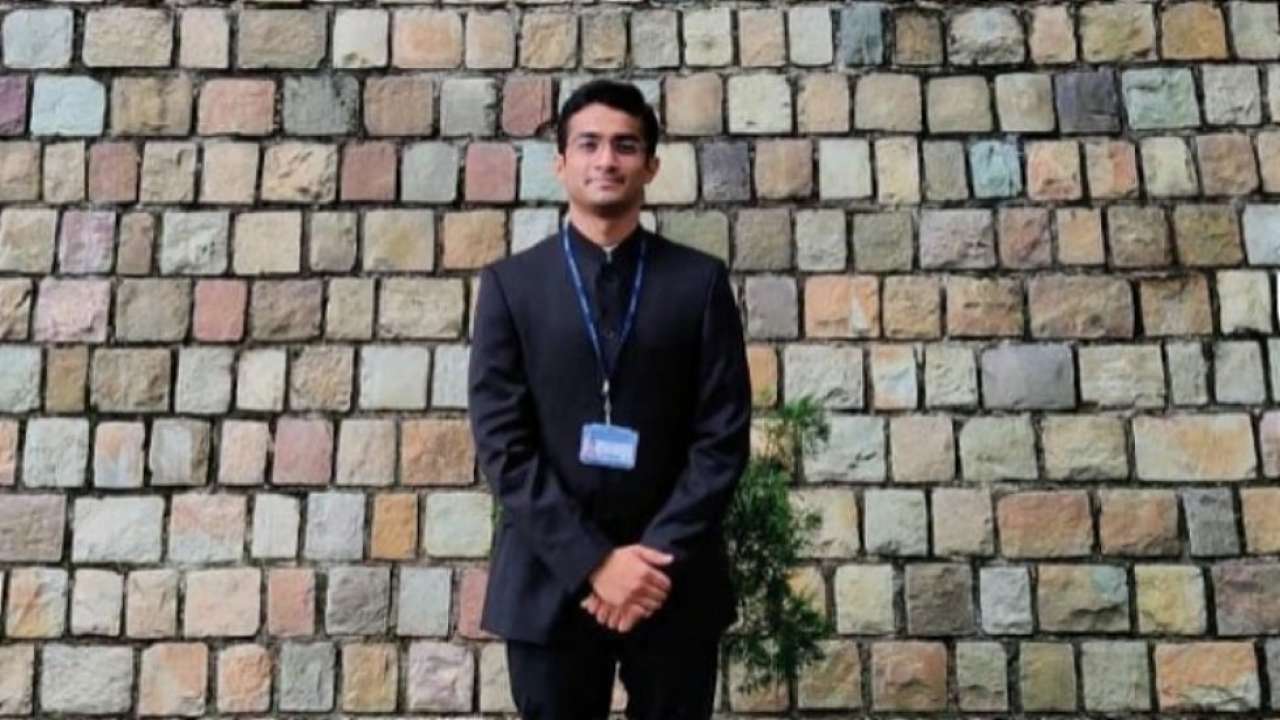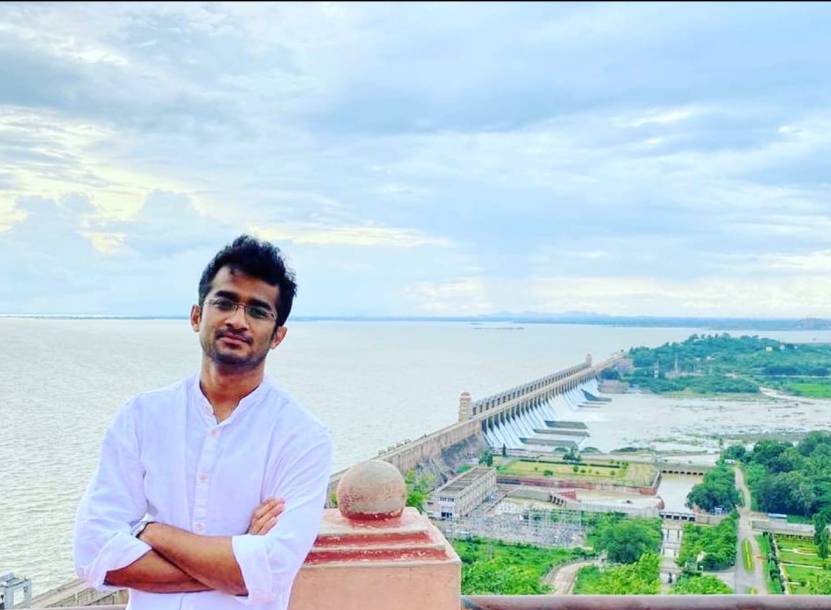Rahul S Sankanur (31) is an Indian Administrative Service (IAS) officer, who is currently posted as the Assistant Commissioner, Lingasugur Sub-Division in Karnataka. Having secured an All India Rank (AIR) of 17 in the Union Public Service Commission (UPSC) Civil Service Examination (CSE) 2018 examination, Rahul tells The Better India about his strategy for the exams.
While today Rahul seems content with the rank he has secured, his journey has been rather difficult, even for his family. “I cleared all the stages of the examination in my fifth attempt and when the results were finally announced I remember the relief that coursed through me,” he says. Rahul’s first ‘serious’ attempt (he also attempted the examination in 2014) was in 2015 where he reached the interview stage but did not make it to the final list and, subsequently, he attempted the examination again in 2016, 2017 and 2018, when he made it to the final list.
“A large part of my personality was shaped at Ramakrishna Vidyashala, a residential school situated in Mysore,” says Rahul, who spent his initial years in a village near Hidkal dam in Karnataka where his father was employed as an Assistant Engineer with the Public Works Department (PWD). His early schooling was in the village where he studied until Class 4 post which he moved to Belgaum where he studied until Class 7.
He went on to complete his engineering degree from R V College in Bengaluru and worked for two years in a private firm after which he decided to attempt the CSE. “While I knew I wanted to be involved in public service I did not know about CSE until my third year in college,” he says.
Keep Changing Your Tactics

“I quit my job in July 2014 and just a month later I appeared for the CSE prelims. I did that to be able to understand how the paper is set and what I should expect. I did not manage to clear that attempt but what it did was help me understand what was in store,” says Rahul. This was followed by his 2015 attempt after having spent close to one year in preparation.
In order to be able to prepare well and have access to better resources Rahul had moved to Delhi and gave his first three attempts from there. “I moved back to Bengaluru after I did not make it to the list after my third attempt,” he says. He adds that he made a note of all the mistakes he was making and worked on them for his fourth attempt. “Being cognizant of the mistakes made and taking corrective measures to change that is a great way to move forward. Doing the same thing over and over and expecting different results is nothing but foolishness,” he adds.
Learning From Mistakes
“One of the first mistakes I made was to attempt the CSE with close to no preparation. It is important to give this examination the seriousness that it demands. It cannot be undertaken without ample preparation,” he says. While this was with regard to the first attempt, subsequently he says that not devoting enough time to writing answers for the mains was also a mistake. “I found that reading came naturally to me as compared to attempting test series and answer writing. This was reflected in the answers I wrote because a lot of them were without a proper structure,” he says.
In order to be able to present answers better, Rahul also worked on improving his handwriting and said that he would spend some time each day working on that skill. “Putting in effort to improve by handwriting helped a great deal. To this I also added the practice of answer writing, which helped in building speed and presenting the answer in a succinct manner,” he says.
Find a Balance in Your Schedule

“UPSC CSE preparation is a marathon, not a sprint. Once you are in it, remember to sustain yourself to complete the race. It is advisable to pace yourself out during the preparation stage to avoid burnout,” says Rahul. Giving yourself small incentives after completing a task, taking a part of Sunday off and also taking frequent breaks while studying are all tried and tested methods that Rahul adapted while preparing.
“It is also important for each aspirant to analyse and figure out when to run fast and when to slow down. This is a personal exercise that each aspirant must undertake for themselves to be able to work better,” he says.
Learn From Other Toppers
While one can get all the knowledge from resource material and books, being able to present the answers well is also an art. “Try and find answers written by previous year toppers and go scour those for ideas. You might find different ways of writing your answer,” he says. In subjects like Ethics one has to look beyond bookish knowledge. For this, Rahul says that he relied on anecdotes and quotes to use in various essay topics.
“These quotes embellished the answers and also provided me with an edge,” he says. Using such tools adds a lot of value to the answers and Rahul says that one can make a note of such quotes that can be used in various answers.
Word To The Wise:
- If you are a novice aspirant, unless and until you are passionate about public service do not get into it. This examination requires immense patience and perseverance, and in the absence of passion, finding success is very difficult.
- For aspirants who are in their third or fourth attempt, identifying mistakes and making changes is important. Find areas that need more practice and work on those alone rather than spending time on topics that you are adept at.
- Do not treat all subjects equally.
- While preparing for current affairs is important, aspirants must give equal time and importance to the static subjects. Do not allow one to overshadow the other during preparation.
- Do not pick up any resource or content material that you cannot revise nearer the exam date. Just reading a book from cover to cover is not important. Make notes and be confident in studying that before the examination.
(Edited by Yoshita Rao)
No comments:
Post a Comment